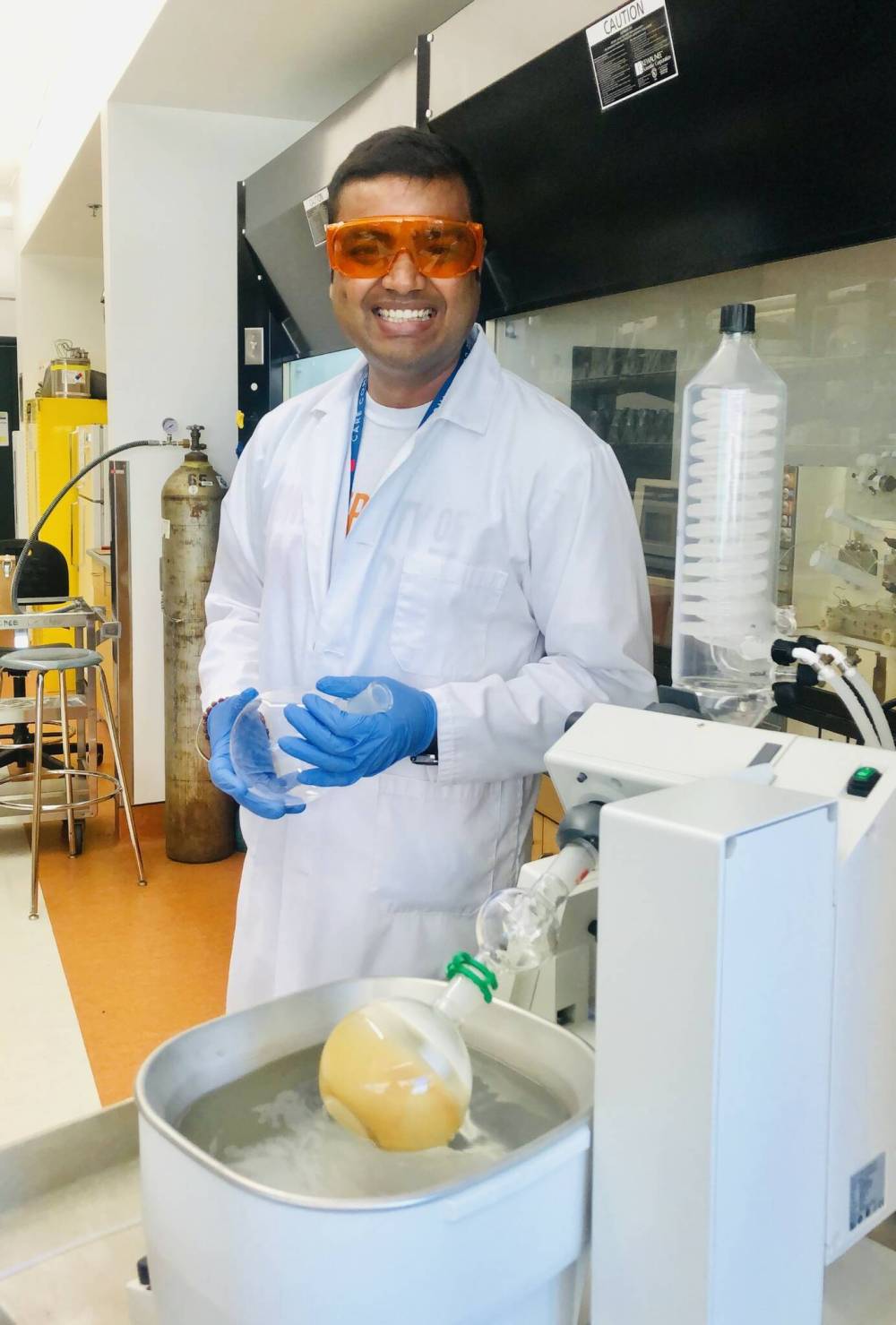U of M chemist earns award for work on new drug candidate for treating Lou Gehrig’s disease
Advertisement
Read this article for free:
or
Already have an account? Log in here »
To continue reading, please subscribe:
Monthly Digital Subscription
$0 for the first 4 weeks*
- Enjoy unlimited reading on winnipegfreepress.com
- Read the E-Edition, our digital replica newspaper
- Access News Break, our award-winning app
- Play interactive puzzles
*No charge for 4 weeks then price increases to the regular rate of $19.95 plus GST every four weeks. Offer available to new and qualified returning subscribers only. Cancel any time.
Monthly Digital Subscription
$4.99/week*
- Enjoy unlimited reading on winnipegfreepress.com
- Read the E-Edition, our digital replica newspaper
- Access News Break, our award-winning app
- Play interactive puzzles
*Billed as $19.95 plus GST every four weeks. Cancel any time.
To continue reading, please subscribe:
Add Free Press access to your Brandon Sun subscription for only an additional
$1 for the first 4 weeks*
*Your next subscription payment will increase by $1.00 and you will be charged $16.99 plus GST for four weeks. After four weeks, your payment will increase to $23.99 plus GST every four weeks.
Read unlimited articles for free today:
or
Already have an account? Log in here »
A University of Manitoba PhD candidate with a dramatic life story has been awarded the Mitacs Innovation Award for co-inventing an aspiring new drug candidate for treating amyotrophic lateral sclerosis (ALS), better known as Lou Gehrig’s disease, announced Monday.
“I thought, like, it’s a spam call. Then someone told me that, ‘You have been selected for the (award),’ so I was numb for 10 to 20 seconds,” says medicinal chemist Nitesh Sanghai, currently pursuing a doctorate at the U of M’s college of pharmacy under the supervision of Prof. Geoffrey K. Tranmer.
Sanghai doesn’t talk about “rags to riches” but instead “grass to grace” in describing his trajectory. The 43-year-old from Jharia, a small town in the Jharkhand district of India, says he was the first person in his family to pass India’s Grade 10 board examination, a gateway to further secondary and post-secondary education.

U of M medicinal chemist Nitesh Sanghai
“I thought of breaking the cycle and pursuing studies with passion and privilege, which my family never had,” he says.
When he arrived in Canada in 2019 after receiving a master’s of pharmacy in India, he had never heard of ALS, a progressive neurodegenerative disease affecting the muscles that allow one to move, swallow, breathe and speak.
But he’d barely left the Winnipeg airport when his supervisor Tranmer was talking to him during the car ride about ALS, a currently incurable disease affecting about 400 Manitobans and 4,000 Canadians.
The fruit of their collaboration is Borsantrazole, which uses the chemical Boron as the starting point for synthesis. Sanghai says the drug offers an improved version of Edaravone, one of only a few treatments currently available in North America to slow ALS progression.
While the drug is still in the pre-clinical stage, Mitacs’s press release says that Sanghai’s work is presenting “excellent safety and efficacy” through tests with lab mice engineered to mimic the human course of the disease.
Mitacs is a Canadian not-for-profit organization funded by industry and government, supporting research and development partnerships between these areas and academia.
In receiving its notable innovation award, Sanghai, who is one of 11 Mitacs winners nationwide, hopes Borsantrazole will attract further interest and investment so the drug can “move from bench to bedside.”
“We want the drug we created to be available to every Canadian in a cost-effective manner. We want to, at least, lower the cost (of treatment) with increased survival or increased clinical benefits,” he says.
conrad.sweatman@freepress.mb.ca

Conrad Sweatman is an arts reporter and feature writer. Before joining the Free Press full-time in 2024, he worked in the U.K. and Canadian cultural sectors, freelanced for outlets including The Walrus, VICE and Prairie Fire. Read more about Conrad.
Our newsroom depends on a growing audience of readers to power our journalism. If you are not a paid reader, please consider becoming a subscriber.
Our newsroom depends on its audience of readers to power our journalism. Thank you for your support.
History
Updated on Monday, November 17, 2025 2:39 PM CST: Fixes typo and clarifies detail in story.




